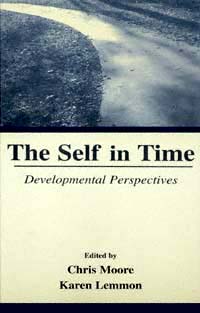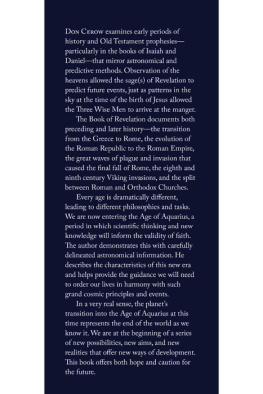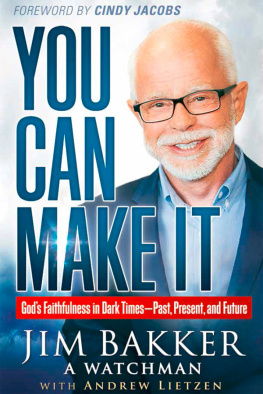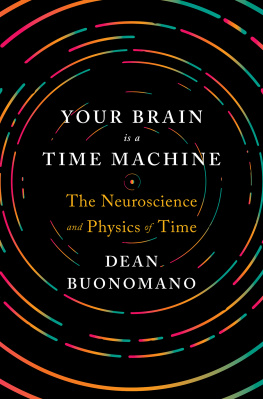Cover

| title | : | The Self in Time : Developmental Perspectives |
| author | : | Moore, Chris; Lemmon, Karen. |
| publisher | : | Lawrence Erlbaum Associates, Inc. |
| isbn10 | asin | : | 0805834559 |
| print isbn13 | : | 9780805834550 |
| ebook isbn13 | : | 9780585382159 |
| language | : | English |
| subject | Self--Congresses, Self in children--Congresses, Time--Psychological aspects--Congresses. |
| publication date | : | 2001 |
| lcc | : | BF697.S4375 2001eb |
| ddc | : | 126 |
| subject | : | Self--Congresses, Self in children--Congresses, Time--Psychological aspects--Congresses. |
Page i
THE SELF IN TIME
Developmental Perspectives
Page ii
This page intentionally left blank
Page iii
THE SELF IN TIME
Developmental Perspectives
Edited by
Chris Moore
Karen Lemmon
Dalhousie University

Page iv
The final camera copy for this work was supplied by the editors.
Copyright 2001 by Lawrence Erlbaum Associates, Inc.
All rights reserved. No part of this book may be reproduced in any
form, by photostat, microfilm, retrieval system, or any other
means, without prior written permission of the publisher.
Lawrence Erlbaum Associates, Inc., Publishers
10 Industrial Avenue
Mahwah, NJ 07430

Library of Congress Cataloging-in-Publication Data
The self in time : developmental perspectives / edited by Chris
Moore & Karen Lemmon.
p. cm.
Includes bibliographical references and indexes.
ISBN 0-8058-3455-9 (hardcover : alk. paper)
1. SelfCongresses. 2. Self in childrenCongresses. 3. TimePsycho
logical aspectsCongresses. I. Moore, Chris, 1958- II. Lemmon,
Karen.
BF697 .S4375 2001
126dc21 00-067720
CIP
Books published by Lawrence Erlbaum Associates are printed on acid-free paper, and their bindings are chosen for strength and durability.
Printed in the United States of America
10 9 8 7 6 5 4 3 2 1
Page v
Contents
Preface | vii |
1 The Nature and Utility of the Temporally Extended Self Chris Moore and Karen Lemmon | |
2 Language and the Self: From the "Experiencing I" to the "Continuing Me" Katherine Nelson | |
3 Owning Experience: Developing Subjective Perspective in Autobiographical Narratives Robyn Fivush | |
4 The Anticipated Self: Mother-Child Talk About Future Events Judith A. Hudson | |
5 The Self: Elevated in Consciousness and Extended in Time Daniel J. Povinelli | |
Page vi
6 Personalizing the Temporally Extended Self: Evaluative Self-Awareness and the Development of Autobiographical Memory Melissa Welch-Ross | |
7 Planning in 3-Year-Olds: A Reflection of the Future Self? Cristina M. Atance and Daniela K. O'Neill | |
8 Extending Self-Consciousness Into the Future John Barresi | |
9 Binding the Self in Time Karen Lemmon and Chris Moore | |
10 Episodic Memory: Essential Distinctions and Developmental Implications Josef Perner | |
11 The Child in Time: Temporal Concepts and Self-Consciousness in the Development of Episodic Memory Teresa McCormack and Christoph Hoerl | |
12 Levels of Consciousness of the Self in Time Philip David Zelazo and Jessica A. Sommerville | |
Author Index | |
Subject Index | |
Contributors | |
Page vii
Preface
As the chapters in this volume will attest, there are a variety of routes to an interest in the idea of the self in time. We first became interested in the topic in considering the function of theory of mind. Having a theory of mind had always been supposed to be useful in the organization of social behavior. However, it also seemed to us to be an essential component of the organization of one's own future behavior. In other words, to show adaptive future behavior, the child must come to grips with the idea that his or her own immediate mental states are connected to his or her own future mental states. Meanwhile, in the memory literature, research on episodic and autobiographical memory seemed to require the notion of an extended self. In particular, the developmentalists working on early memory were forced to tackle head on the relations between autobiographical memory and self-development. And then there were those with perhaps a more direct interest in self-development faced with the idea that mirror self-recognition did not seem to capture all that was entailed by having an understanding of self. This convergence of a variety of research interests around the notion of the temporally extended self called out for an attempt at integration, and so, in 1997, we organized a symposium at the meeting of the Society for Research in Child Development in Washington, DC. This volume is an expanded version of that symposium. We are grateful to Judi Amsel for her faith in the project and for her encouragement. Judi was a great ally for developmental psychology during her time with Lawrence Erlbaum Associates. We are also most grateful to Bonita D'Amil and Sarah Wahlert of Lawrence Erlbaum Associates for their excellent editorial work.
- Chris Moore
- Karen Lemmon
Page viii
This page intentionally left blank
Page 1
1
The Nature and Utility of the Temporally Extended Self
Chris Moore
Karen Lemmon
Dalhousie University
What would it take to have the foresight to send a letter to one's future self (Fig. 1.1)? And what would it take for someone, on receiving such a letter, to feel sorrow for the sender? Because the persistence of personal identity through time is such a fundamental feature of our self-concepts, it is likely that these questions rarely enter into our day-to-day thinking. However, they are significant questions because, in a very real sense, Hobbes is correct: None of us is the same either as we were in the

FIG. 1.1.
Calvin and Hobbes Watterson. Reprinted with permission of
Universal Press Syndicate. All rights reserved.
Page 2
Next page










